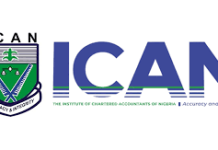The Nigerian Stock Exchange, NSE, has revealed plans to revise listing and trading fees for securities listed and traded on the fixed Income market.
According to the Nigerian Bourse, the revised fee structure, which is effective August 17, 2016, will be piloted for an initial six month period, after which the fee is evaluated to determine if it has met the objectives.
The NSE, under the structure, will no longer charge trading fees on fixed income traded on its platform. The initial flat listing application fees of 0.15 per cent for all bond types has been replaced with variable listing application fees.
With this, corporate bonds exclusively listed on the NSE, with existing equity listing, will attract 0.01 per cent listing application fee.
Also, dual listed corporate bonds with existing equity listing and other corporate bonds will attract 0.0375 per cent listing application fees.Similarly, the listing application fees for state and supranational bonds have been reduced to 0.05 per cent.
The Exchange explained that it also replaced the fixed brokerage commission of 0.0005 per cent with a negotiable rate capped at one per cent.
NSE added that this will enable investors negotiate trading commission with brokerage firms, thus driving competition and best execution.
Speaking on the development, the Executive Director, Capital Markets, NSE, Haruna Jalo-Waziri, noted that the fee reduction in the NSE fixed income market is in line with the Exchange’s commitment to boost market efficiency.
“The reduction in listing application fees gives issuers opportunity to raise their profile and increase visibility through listing on a globally recognized Exchange with the highest regulatory standards.
“The aim is to reduce issuers cost of accessing long term capital and to provide investors with diverse investment products at competitive trading fees”.
Jalo-Waziri described the investment opportunities in the Nigerian capital market as huge, urging issuers to raise cheap long term capital through bond issuance for business expansion, project finance, loan refinancing among others.












